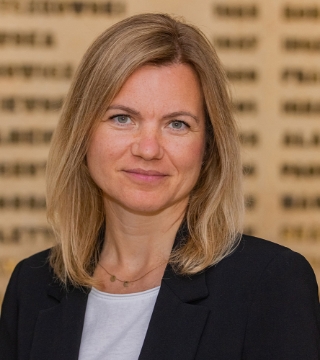Virus-like particles based on flaviviruses and antiviral activity of synthetic compounds
Rapid progress in scientific fields related to infectious diseases such as molecular biology, genetic engineering and virology contributed to the development of many vaccines and antiviral drugs against many dangerous viral pathogens, however there are many other viruses for which effective prevention and therapeutic options are still missing. Many emerging ssRNA(+) viruses are associated with human diseases of great medical importance. These include Zika virus (ZIKV), tick-borne encephalitis virus (TBEV), dengue virus, West Nile virus, Ebola virus, Middle East Respiratory Syndrome coronavirus, Severe Acute Respiratory Syndrome coronavirus and the last one, very important Severe Acute Respiratory Syndrome coronavirus 2 (SARS-CoV-2). Emerging epidemics caused by new viral pathogens or more pathogenic strains of pre-existing viral pathogens call for the development of effective strategies for rapid production of new generation vaccines or effective therapeutic agents.
Our research is focused on the development of virus-like particles (VLPs) composed of different full- or truncated forms of structural viral proteins of ssRNA (+) viruses which may provide an alternative, specific antigens used for vaccination purposes. Due to morphological and antigenic properties with natural virions as well as lack of genetic material, VLPs can be used as safe antigens in vaccine development. We are mainly focus on the production of VLPs of Zika, tick-borne encephalitis and SARS-CoV-2 virus using different expression systems like insect, mammalian, and protozoan Leishmania tarentolae. We analyze the immunogenic properties of produced VLPs in mice studies and their potential in the production of neutralizing antibodies. Our approach may contribute to the development of safe and low-cost vaccines against these emerging human pathogens.
Our research interests are also focused on the identification of potent antiviral compounds against many dangerous viral human pathogens. We are testing the antiviral activity of synthesized compounds belonging to tunicamycin analogues and mimetics. Antibiotic tunicamycin which blocks the first step of N-glycosylation possesses the significant antiviral activity, however the severe neurological side effects in vivo prevented its use as a therapeutic agent. We are testing the impact of compounds on the proliferation of viruses, the formation of the envelope glycoproteins and localization of these proteins in target cells. We anticipate that studies using novel synthesized compounds may lead to the development of effective methods for inhibiting viral replication. Innovative antiviral approach using selected, highly effective inhibitors of glycosylation may be one of the most efficient therapeutic strategies in future. We hope that our research will allow for the selection of compounds with significant commercial potential.
Research grants
1. „The role of glycosylation of structural proteins in the life cycle of SARS-CoV-2 coronavirus”, 2022-2026, Polish National Science Centre OPUS program
2. “Towards safe anti-SARS-CoV-2 coronavirus vaccine – modifications of the spike protein leading to the elimination of ADE effect”, 2020-2022, Polish National Science Centre
3. „Tick-borne encephalitis virus – learning about the mechanisms useful in treatment and prevention”, 2016-2021, Polish National Science Centre SONATA program
4. “Anti-Zika vaccine – innovative methods for antigen construction”, 2017-2020, The National Centre for Research and Development, LIDER program
5. „The influence of tunicamycin analogues and mimetics on hepatitis C virus (HCV) propagation”, 2012-2016, Polish National Science Centre PRELUDIUM 2 program
6. „Tunicamycin analogues and mimetics as new antiviral agents against different strains of Influenza virus type A”, 2012-2014, Polish Ministry of Science and Higher Education IUVENTUS PLUS program
7. „Glycosylation inhibitors as new antiviral agents against different strains of Influenza virus type A”, 2010-2011, Polish Ministry of Science and Higher Education IUVENTUS PLUS program



